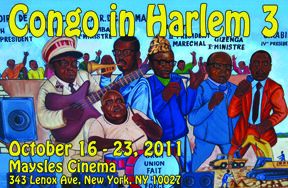The Cool World
/Saturday, February 5th, 7:30 pm
Harlem Homegrown
Under the Influence of Sharifa Rhodes-Pitts:
The Cool World
Dir. Shirley Clarke, 1964, 120 min.
With special guest, Ronnie “Hampton” Clanton
Sharifa Rhodes-Pitts told us "I first heard of The Cool World because of its connection with poet and activist June Jordan, who worked as an assistant to producer
Frederick Wiseman. The film's attempt to capture the reality of streetlife in Harlem takes us directly into the problem of how the neighborhood has been represented, misrepresented, and imagined, which is also a big concern of my book “Harlem is Nowhere: A Journey to the Mecca of Black America.” I look forward to viewing and discussing this film with Ronnie Clanton, who starred as its protagonist, Duke (credited in the film as Hampton Clanton)." Ronnie “Hampton” Clanton also stared in the seminal and groundbreaking film the Education of Sonny Carson (1974) as Sonny Carson.
After the Movie: Conversation, Q&A with Sharifa Rhodes-Pitts and Ronnie Clanton and a short reading from “Harlem is Nowhere” with Sharifa Rhodes-Pitts
Reception Sponsored By Sugar Hill Ale to follow screening and discussion!





